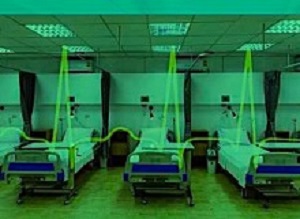
There is a lot of criticism of the NHI Bill, but little of it is constructive, writes Professor Shabir Moosa, a family physician and professor at the department of family medicine and primary care, University of Witwatersrand and president of the African region of WONCA, World Organisation of Family Doctors. He writes in a Daily Maverick report that the NHI appears to be the only concrete plan in town but it has attracted criticism either from vested interests or has been highly sensationalised.
Moosa writes that many critics (Tamar Kahn, Laura Lopez Gonzalez) are saying that government will do away with medical schemes, but fail to highlight that the Bill says in Clause 33 that once the NHI is “fully implemented”, medical schemes “may” only offer complementary cover. May is not must, a big difference in law.
But, he says: “I don’t believe that any citizen can be prevented from having a medical aid scheme offering the full range of services (if it includes the NHI offering) because it will be so easy to challenge the NHI constitutionally. It will only require someone who suffers materially because of a simple primary care problem through an NHI-contracted provider to render that ‘may’ unconstitutional. So medical schemes are here to stay as they are.”
Moosa writes that primary healthcare is a priority (including action on social determinants of health) and fixing health service delivery at a local level should be the first step in progressive universalism.
Moosa writes that a World Bank study on universal healthcare systems in 24 developing countries shows implementation in many countries. He says the identification of risks in this study is to create stepping stones for implementing UHC, not arguing against it.
Di McIntyre an emeritus professor of the health economics unit at the University of Cape Town and executive director of the International Health Economics Association writes in a Business Day report that 25 years since our South Africa’s first democratic elections, little has changed for the worst-off in our society. In fact, she says, inequalities in the health system and in many other sectors have increased. We haven’t begun to meet the constitutional rights of everyone to have access to health services.
McIntyre writes that we cannot continue to accept the status quo, and this is why we have to move towards a universal healthcare system (UHS).
She says South Africans don’t trust our governance structures and fear introducing reforms that will rely on good governance. She says it is a great sadness that it will take quite a long time to reach our UHS dream given the government debt we now face.
Nevertheless, McIntyre argues, building a UHS in a phased and cautious manner, while constantly remaining vigilant and learning from the lessons of how the state was allowed to be captured, and demonstrating how quality health care can be efficiently provided for all South Africans, is just what is needed to restore our trust in institutions that should be serving in the public interest.
[link url="https://www.dailymaverick.co.za/article/2019-08-30-to-nhi-or-not-to-nhi-that-is-the-question-a-serious-one/"]Daily Maverick report[/link]
[link url="https://www.businesslive.co.za/opinion/columnists/2019-08-28-we-can-build-nhi-and-we-should/"]Business Day report[/link]
